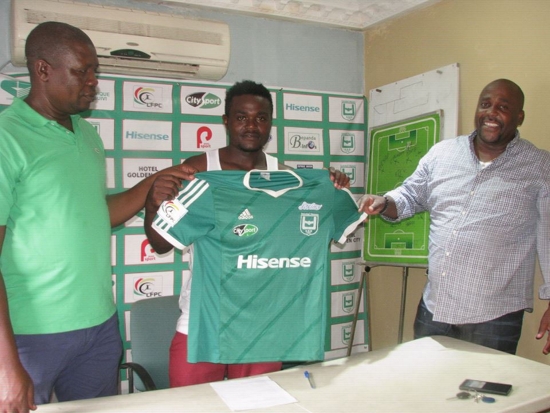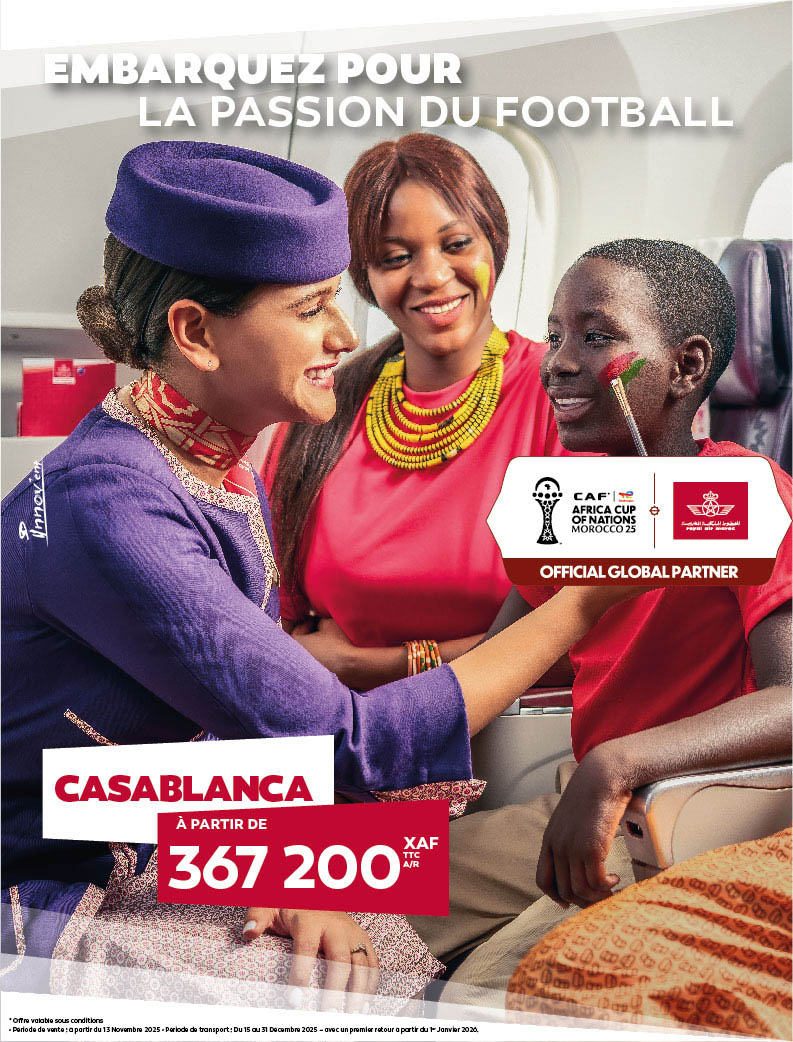By Philemon Mbale
Guest Writer, kick442.com-Africa
Within the past nine, between 2015 and 2023, more than 100 Cameroonian footballers left the country’s Elite football league championship in search of greener pastures abroad. The dream arguably was to make it to Europe’s top five leagues—France, Germany, Spain, England, or Italy—places where careers are launched, and legacies are built.
Unfortunately, none of them made it directly into these prestigious leagues. This bleak statistic is a damning indictment of the state of football development in Cameroon and raises serious concerns about the capacity of the country’s football system to produce talent fit for international competition.
This inability of Cameroon’s domestic league to deliver players directly to Europe’s top clubs is not an isolated incident but rather a recurring theme. It reflects deep-rooted problems within the nation’s football infrastructure, which many experts and fans have lamented for years. The disconnect between local football and international success points to serious flaws in player development, infrastructure, and the broader organizational strategies within the Cameroonian football ecosystem.
Infrastructural Deficiencies
One of the most glaring issues is the lack of quality infrastructure. The top leagues in Europe are not just looking for talented players; they seek professionals who are polished, physically prepared, and tactically astute. Cameroon’s elite league, however, struggles to provide the training grounds, fitness centers, and modern stadiums that would allow players to reach their full potential. In Europe, young footballers are nurtured in world-class facilities, surrounded by medical staff, nutritionists, and analysts—all contributing to their overall development. In Cameroon, these resources are woefully inadequate, leaving talented players underprepared for the rigors of international competition.
Absence of Effective Football Academies
Cameroon, despite its rich football history, lacks a comprehensive system of academies capable of detecting and developing young talent. The success of top African players such as Njitap, Mbia, Clinton Njie who were stars in European leagues, belies the fact that Cameroon’s current system fails to consistently identify and nurture the next generation of players. In comparison to countries like Senegal and Ivory Coast, which have produced top European league stars through well-structured academies and partnerships, Cameroon falls short.
Football academies are the lifeblood of talent pipelines, but in Cameroon, many clubs lack the resources or expertise to run effective youth systems. As a result, many players are not given the right mentorship or training from a young age, leaving them underdeveloped when they do get a chance abroad. The failure to invest in these academies stifles the potential of many talented young footballers who never get the opportunity to shine on the international stage.
Incompetent Training and Coaching Staff
A significant part of a footballer’s development is in the hands of their coaches, yet many teams in Cameroon’s top flight are hampered by a lack of qualified and competent coaching staff. The intricate training processes needed to develop young players are not adequately followed, and there is a lack of innovative approaches to modern football. Coaches who should be mentoring the next generation often lack both the necessary qualifications and the exposure to global best practices. This has led to stagnation, with young players being inadequately prepared to transition from domestic football to the elite level abroad.
Poor decision making by players and their entourage
Poor decision-making by players and their entourages has derailed the careers of several promising Cameroonian footballers, preventing them from reaching their full potential. Choices such as joining unsuitable clubs, prioritizing short-term financial gain over long-term development, or surrounding themselves with unqualified advisors have often led to missed opportunities. In some cases, players have failed to adapt to foreign leagues due to cultural and professional mismatches, while others have fallen victim to poor career management and conflicts with coaches. These misguided decisions, often made under pressure or without proper guidance, have prematurely ended or stalled careers that could have flourished with the right support and strategy.
Poor Marketing and International Exposure
Football has evolved beyond just what happens on the pitch. For players to get noticed by the top leagues, clubs need robust marketing and exposure strategies. Sadly, Cameroonian clubs are lagging in this regard. There is little or no marketing of players to international scouts, and clubs rarely engage in strategic partnerships with foreign teams to facilitate talent exchange programs. As a result, Cameroonian players are often invisible on the global stage, making it harder for them to secure spots in top leagues. A recent example is the transfer of about 10 teenage Cameroonian footballers from Livanda Lions FA to Serbia with Club FK Sloga.
In contrast, countries with similar footballing cultures like Ghana, Senegal, South Africa, Ivory Coast and Nigeria have excelled in marketing their talent through international tournaments and collaborations with European clubs. Two Ghanaian youngsters were recently signed into FC Barcelona’s academy straight from Ghana. Cameroon’s failure to do the same has severely limited its players’ ability to be recognized on the global stage.
Financial Struggles of Elite Clubs
Cameroonian football clubs are also hampered by a lack of funds. Running a football academy, hiring competent staff, maintaining infrastructure, and marketing players all require substantial financial backing, which many elite clubs simply do not have. Without adequate funding, clubs cannot afford to invest in long-term development plans for their players. Instead, they often rely on selling players to less competitive markets to stay afloat financially, rather than focusing on building players who could make it to Europe’s top leagues.
The Way Forward
Cameroon’s football administrators and stakeholders must recognize that the problem is not the talent pool but the system. A complete overhaul of the football infrastructure, from youth academies to marketing strategies, is necessary. This includes building better facilities, hiring more competent coaches, and creating strategic partnerships with European clubs to foster talent exchanges. The government, private sector, and football federations need to collaborate to ensure that football is not just a game in Cameroon but an industry that can compete on the global stage.
Investing in football infrastructure, youth development, and marketing will not just benefit the players but also the country’s footballing reputation. Cameroon has a rich football heritage, but to restore its place as a powerhouse, much more must be done to ensure that young footballers can fulfill their dreams of playing in Europe’s top leagues.
For now, the exodus of players is a painful reminder of how much talent Cameroon is losing and how much work remains to be done.
Below is a list of 100 Cameroonian footballers who left MTN Elite 1 for abroad and finally did not make it to Europe’s top leagues. Many of them returned back home after a few spells out of Cameroon, while some are still playing today outside of Europe’s top leagues.
1. Moise Sakava
2. Innocent Assana
3. George Bokwe
4. Arouna Dang
5. Clarence Bitang
6. Frannz Pangop
7. Kombi Manjang
8. Agbor Kevin
9. Mohamed Djetei
10. Mark Ojong
11. Ronald Ngah
12. Nji Kelvin Ketu
13. Otia Paul
14. Rostand Mbai
15. Baba Basile
16. Ngweni Ndasi
17. Marou Souaibou
18. Ngueme Araina
19. Emmanuel Mahop
20. Dande Junior
21. Simon Omossola
22. Franck Boya
23. Ahmed Ngouyamsa
24. Ebah Tobi
25. Gustave Moundi
26. Herman Kekambus
27. Bertin Nguemaleu
28. Guy Edoa Serge
29. Ekolo Malolo
30. Ako Asomo
31. Pascal Mbarga Abega
32. Leonel Ateba
33. Paul Serge Atangana Mvondo
34. Thierry Akono
35. Eta Bawak
36. Bong Leonel
37. Ntui Obasi
38. Bate Arsene
39. Yindui Bouba
40. Yindui Mohamed
41. Heutcou Gerome
42. Epane Litizi
43. Serge Andoulo
44. Nlend Samuel
45. Moise Pouati
46. Mfegue George
47. Zock II
48. Alfonse Marie Tiencheu
49. Yannick Noah
50. Che Malone
51. Narcise Nlend
52. Francis Elimbi
53. Platini Kaham
54. Kongyuy Jude
55. Esua Jeannot
56. Junior Awono
57. Franklin Tchebemou
59. Junior Ngongang Figo
60. Kwedi Elombo
61. Raymond Fossouo
62. Moussa Soulemanou
63. Enow Nkembe Adolf
64. Mani Bertrand
65. Efala Konguep
66. Ernest Nsombo
67. Brice Tchamabo
68. Brice Kalamoum
69. Fabrice Ngah
70. Parfait Tchoubia
71. Junior Thomas Libih
72. Alain Rostand Nandjou
73. Junior Kemadjou
74. Junior Atemengue
75. Christian Heumi
76. Kouoh Bille
77. Pange Lobe
78. Ako Harry
79. Aaron Mbimbe
80. Romeo Nyem Nyem
81. Bonyang Fernando
82. Kingue Pondo
83. Yvan Mboudou Mballa
84. Thierry Nloga Makon
85. Didier Yimga
86. Jean Joseph Kombus
87. Salomon Banga
88. Aurelien Etame
89. Thierry Tchuente
90. Francis Balliang
91. Kaiba Djawal
92. Donfack Ramses
93. Amih Renzo
94. Abdoulaye Yahaya
95. Joseph Yanki
96. Thierry Etoga
97. Mfede Junior
98. Felix Chenkam
99. Ngwem Jonathan
100. Christ Mbondi
Copyright©2024 kick442.com-Cameroon
All rights reserved. This material and any other digital content on this platform may not be reproduced, published, broadcast, written, or distributed in full or in part, without written permission from our management.
This site is not responsible for the content displayed by external sites



